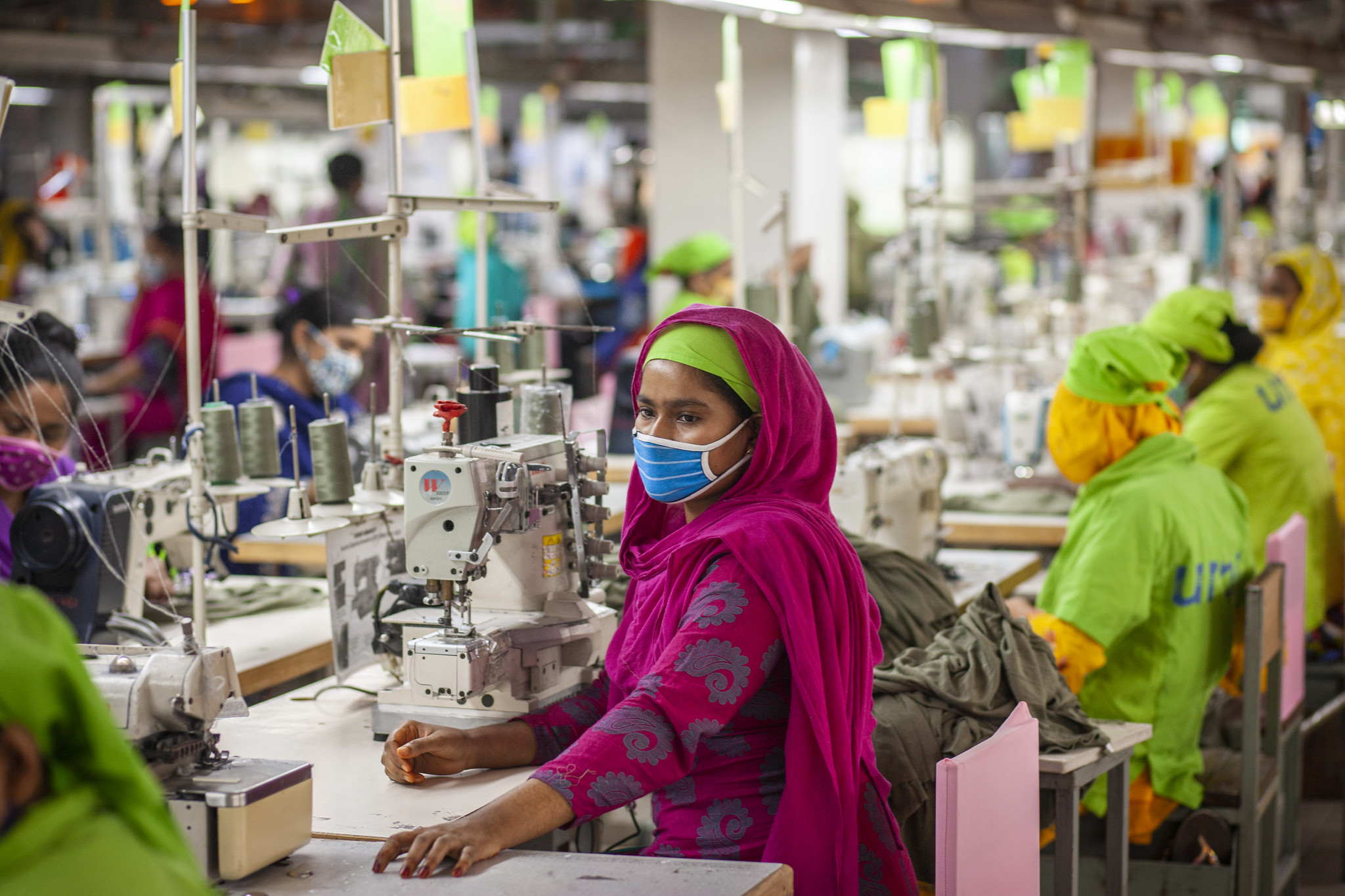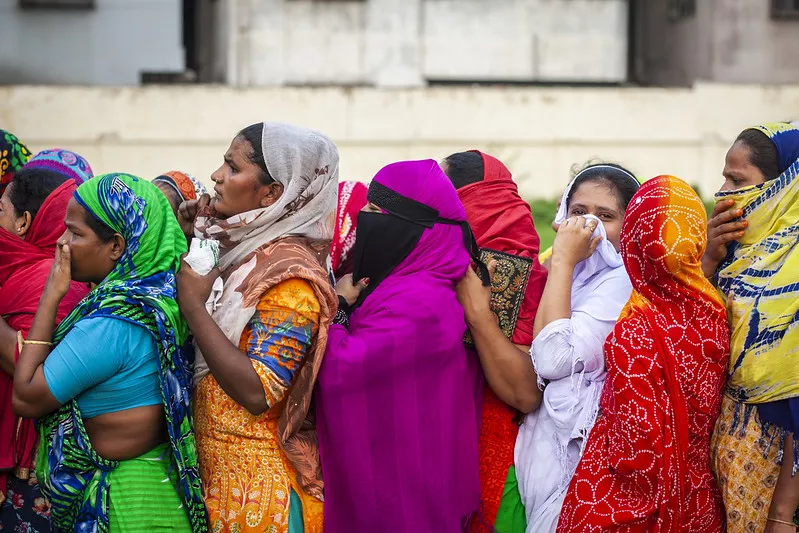In 2022, CLEAR launched a competitive call for new research grants to support the generation of new evidence on the secondary impacts of the Covid-19 pandemic in Bangladesh.
We received an amazing response with nearly 80 high quality EOIs submitted by research organisations from all over the world.
Twelve EOIs were shortlisted and invited to submit full, detailed, proposals. These proposals were reviewed and scored by our panel of experts and five projects were finally selected.
The evidence generated from these will support a national governance and policy response, improve service delivery and promote innovation.
You can find a brief summary of each project, and links to more detailed information, under the headings below.
The Feedback State: hearing & responding to Bangladeshi citizens during the Covid-19 pandemic
The Bangladesh state has a strong record of learning from crises, and, before the pandemic, made reforms to enable citizens to participate in the governance process, including through strengthening mechanisms of feedback and response. So, did the Bangladesh state succeed in listening and responding to its citizens’ needs regarding health and social protection during the pandemic? What did it learn from how it listens and responds to citizen feedback that will help it govern future crises?
Led by Dr Naomi Hossain of the Accountability Research Center at American University this project brings together researchers from Jahangirnagar and Rajshahi Universities, BRAC Institute of Governance and Development (BIGD) at BRAC University and Manusher Jonno Foundation (MJF) to understand these important questions for the governance of successful pandemic response.
Primary CLEAR theme: Service delivery, accountability and governance
Secondary CLEAR themes: Poverty and vulnerability, Protection of rights, Innovations
Rethinking Accountability for Digitised Futures in Bangladesh
Professor Joe Devine from University of Bath and Dr Ipshita Basu of University of Westminster lead a partnership including researchers from A2i and CARE Bangladesh to ensure that future digital connectiveness increases accountability for marginalized communities and improves the governance of service delivery.
Digitized services in Bangladesh have to confront the twin challenges of capacity constraints and deepening digital inequality. This leads to huge gender and income gaps in ICT access across generations, ethnicities, religions and urban-rural contexts.
Digitised platforms like Surrokha, the National Helpline and other A2i led initiatives were a flagship part of the Government of Bangladesh’s Covid-19 policy response. Meanwhile, NGOs like CARE also used digital technology to provide information on essential services to vulnerable citizens and mobilised the social interface to increase uptake. This study will examine how marginalized communities living in the peripheries of urban and rural areas engaged with these digital services, the impact they had, and how lessons from this can improve accountability and responsiveness in future.
Primary CLEAR theme: Service delivery, accountability and governance
Secondary CLEAR themes: Innovations, Poverty and vulnerability, Protection of rights
Read the Accountability and Digitised Futures Research Project Summary
Becoming Poor: Social protection experiences of and attitudes towards new urban poor after Covid-19 in Bangladesh
This joint IDS and BIGD project, led by Dr Keetie Roelen, aims to increase awareness among key stakeholders of the psychosocial challenges in rebuilding the livelihoods of those who have fallen into and remained in poverty since Covid-19.
Social protection policies have great potential to counteract stress, reduce stigma and foster inclusion. However, design and delivery of such policies can make matters worse if premised on negative attitudes and pejorative treatment. The disruptive and enduring impact of Covid-19 on livelihoods in Bangladesh is relatively well-documented but less is known about people’s lived experiences in relation to unforeseen and rapid changes to living conditions and the psychological consequences of impoverishment. This study, focused on the so-called ‘new poor’ in urban settings, will explore these experiences and people’s engagement with social support systems suggest how social protection measures can help to alleviate such challenges.
Primary CLEAR theme: Poverty and vulnerability
Secondary CLEAR themes: service delivery, accountability and governance
Has the Covid-19 pandemic worsened multidimensional poverty and vulnerability? Evidence from a unique national longitudinal household survey dataset in Bangladesh
This study aims to identify both the short-term and medium-term effects on poverty and vulnerability of exposure to infection and lockdown policies during the Covid-19 pandemic in Bangladesh.
Poverty is understood to include not only monetary dimensions, such as household consumption, but also non-monetary dimensions, such as education and health. The study will measure individual outcomes and construct multi-dimensional poverty indices to assess poverty in a comprehensive way. It will pay special attention to so-called ‘new poor’ for example returnee migrants who lost work overseas during the pandemic, workers in the informal sector, and households in remote areas with poor access to the internet and therefore limited access to schooling during the pandemic.
Co-led by Professor David Fielding of the Global Development Institute and Professor Selim Raihan, University of Dhaka the project is a collaboration between GDI, University of Dhaka and the South Asian Network on Economic Modeling (SANEM).
Primary CLEAR theme: Poverty and vulnerability
Secondary CLEAR themes: service delivery, accountability and governance
Read the Multidimensional poverty and vulnerability Research Project Summary
Effective Digital Health Platform for Sexual and Reproductive Health Rights (SRHR) Services: a Mixed-methods Approach to Understanding User Experiences, Needs, and Rights in Bangladesh
BRAC James P Grant School of Public Health, BRAC University, led by Professor Farzana Misha, will conduct this study to explore the role of digital health services during, and beyond, the COVID-19 pandemic on adolescent and young adult with a focus on Sexual and Reproductive Health Rights (SRHR).
Bangladesh has observed an exponential growth of digitised health care services since the advent of the Covid-19 pandemic. Although digital platforms have the potential to disseminate health information among adolescents and young adults, these platforms can be unsafe for sharing sensitive health information, particularly with regards to SRHR. Moreover, the risks for marginalised and persecuted groups such as women, HIV positive individuals and members of the LGBTQ community are even greater.
Digital health information available through unverified websites, social media, is often inaccurate and propagates common myths and misconceptions, creating confusion, anxieties, and even adverse health consequences. While there have been several efforts to disseminate SRHR information via digital platforms by government, non-government, and private organisations, the designs of the efforts have not been grounded in evidence and their efficacy remains unknown. Similarly, the regulatory framework needs to keep pace to ensure sufficient end-users’ protection. It is therefore important to gain a better understanding of emerging and generally uncharted digital health landscape of Bangladesh. Against this backdrop, this project intends to explore the use of these platforms and learn lesson to inform he design and regulation of future digital health platforms.
Primary CLEAR theme: Innovations
Secondary CLEAR themes: Service delivery, accountability and governance, Rights of marginalised populations
Read the SRHR Digital Health Services Research Project Summary
In addition to the five new grants work is also continuing on two additional projects funded from the first phase of the programme. These are summarised here…
Chronicles of hard times in Bangladesh: Durdin-er Diaries
This project sets out to explore the trajectories of recovery, coping strategies, and
lived experience of governance of people whose livelihoods and incomes have been
severely affected by the Covid-19 pandemic in Bangladesh.
Whilst we know something of how households respond to sudden changes in
income or unexpected expenditure, the Covid-19 context is different as these changes
– or shocks – were experienced collectively by many groups at the same time, and
triggered substantial social change, including patterns of migration.
Existing evidence suggests that responses to collective shocks are different in nature
to ‘idiosyncratic’ shocks that affect only one household or a limited geography or
group. This is particularly the case where informal social protection mechanisms at
community level, and sources of income such as remittances, are also disrupted or
put under great pressure; likely to be the case as a result of the pandemic.
This joint BIGD and IDS project, led by Dr Sohela Nazneen, explores how these new poor are meeting or attempting to meet their governance needs in the
context of Covid-19.
Primary CLEAR theme: Service delivery, accountability, and governance
Secondary CLEAR themes: Poverty and vulnerability, Protection of rights,
Innovations
Read the Durdin-er Diaries project summary
Education Watch 2023
The impact of school closures on learning has been devastating.
In Bangladesh, schools remained closed due to the pandemic for more than 500
consecutive days, the longest in the world. The good progress in vaccinating post-primary age children made it possible to restart schools in relative safety, though
the impact on learning, is likely to be most devastating with pre-COVID learning outcomes and resilience to shock already low and dropout rates high.
The most vulnerable children and those unable to access remote learning were at increased risk of never returning to the classroom and even being forced into child marriage or child labour.
This project, led by Dr. Manzoor Ahmed, Vice-Chairperson and Advisor at the Campaign for Popular Education (CAMPE) seeks to address the extent of learning loss among primary and secondary school children and explore options for recovery, renewal and enhancing resilience in the system.
Primary CLEAR theme: Service delivery, accountability, and governance
Secondary CLEAR themes: Poverty and vulnerability, Protection of rights
Read the Education Watch 2023 project summary

